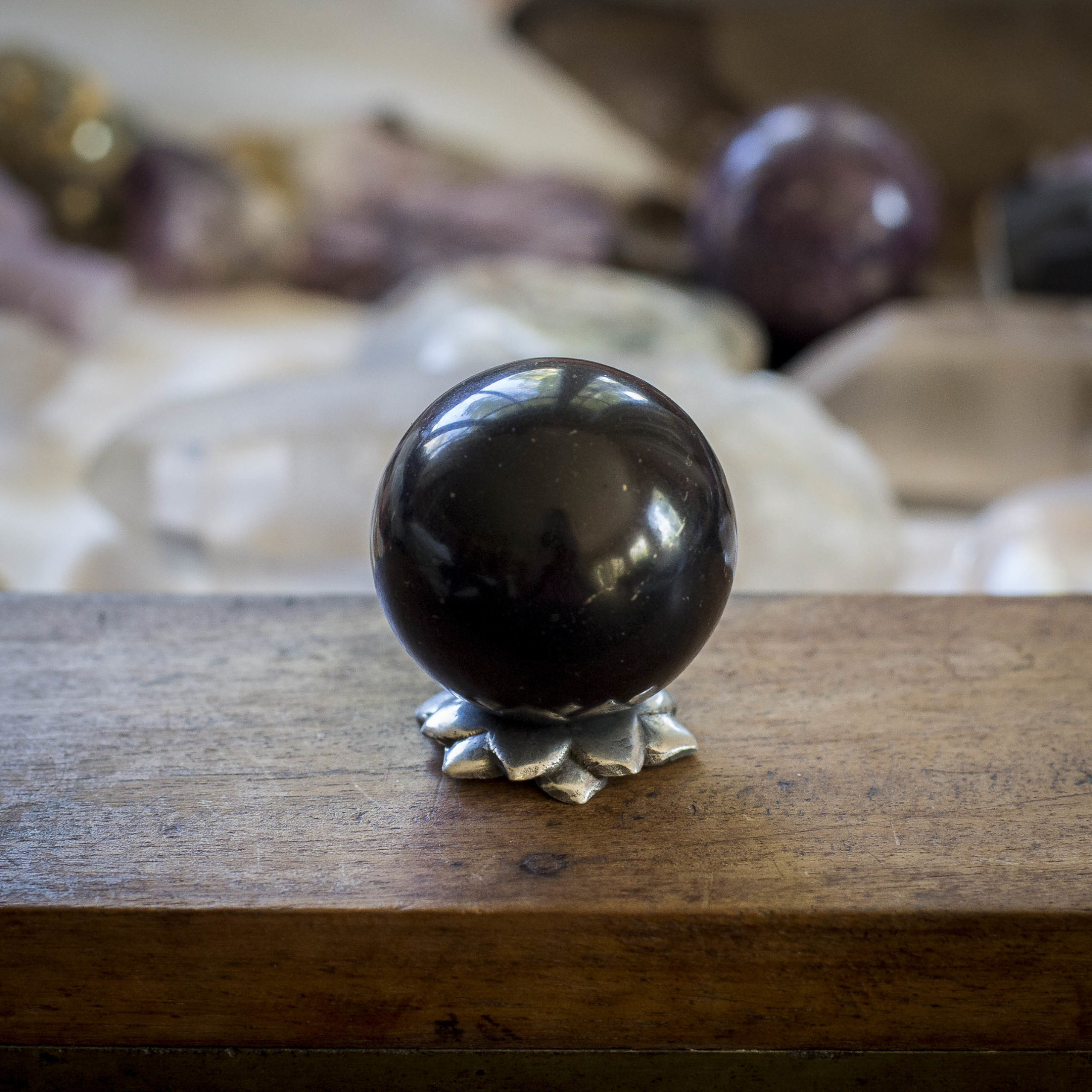Shungite - A Rock With Anti-Inflammatory plus Grounding Properties

Shungite is a black mineraloid that has been found in the Karelia region of Russia. It is a mineral deposit which is located near the village of Shunga. The mineral was discovered in numerous locations and is believed to be a powerful anti-inflammatory agent. It has also been proven to have qualities of grounding and is made up of heavy metals like zinc and copper.
Origin story
Shungite is a carbon mineral. It has an unusual chemical composition that distinguishes it from other minerals and rocks. Its natural characteristics include fullerenes that encapsulate water.
It is believed to have occurred at least two billion years ago. The mineral was discovered within the Karelian region of Russia. In fact, the name "shungite" is derived from the village of Shun'ga.
In the 17th and 18th centuries the mineral gained a reputation for healing. People in the area used it to treat ailments and to disinfect. It was also used to treat infections. Peter the Great recognized its advantages and promoted its usage.
When the Russian army took over Sweden Shungite was a key element of their success. Several soldiers were poisoned by ore they were processing, however, the shungite-infused water healed the entire army.
Composition
Shungite is an amorphous carbon rock that has a unique chemical composition. It is the result of the interplay between individual elements that create complex organometallic complexes. It also has excellent electrical and thermal reactivity.
Several research studies are being conducted on shungite. They have focused on shungite's sorption properties, antioxidant properties, and therapeutic properties.

The mineral shungite is carbon amorphous mineral that has high reactivity in thermal and electrical processes. This is due to the presence of the carbon atoms hybridized. A special spherical structure is created by the atoms of the hybridized carbon. The constituents of shungite include A12O3, FeO, MgO, and TiO2.
The mineral shungite is an alotropic metastable carbon form which is distinguished by its highly adsorbent capacity and an extremely high reactivity at elevated temperatures. It is also known to contain minerals like REE.
Anti-inflammatory properties
Shungite has anti-inflammatory properties that have a broad range of applications. It's antioxidant properties counteract superoxide production, reduce ROS/RNS levels, as well as inhibit inflammatory cytokine reaction. These properties can help protect the skin from UVB irradiation, and could be beneficial to those suffering from oxidative stress disorders.
In addition to its antioxidant properties, shungite shields cells from harming electromagnetic fields. This suggests that it can be beneficial in cancer treatment. Additionally, it could serve in the form of an antihistamine. While more studies are needed to confirm these findings, this study highlights the potential of shungite to combat inflammation and oxidative disorders.
A research study was carried out to study the effects of shungite in rats. Results showed that shungite slowed down the production of ROS and lowered the levels of inflammatory cytokine and elevated ROS-scavenging enzymes. Furthermore, it restored the the imbalance of inflammatory cytokine caused by UV radiation.

Metals heavy released by samples of shungite
Shungite samples released various heavy metals in water. Lead, cadmiumand zinc arsenic, copper and lead were detected. The levels of these elements were determined in drinking water prior to and after contact with shungite.
Shungite is a natural carbon-containing mineral. It has a very high capacity for adsorption and has a unique chemical composition. A study was conducted to study the sorption characteristics of shungite towards heavy metals. Additionally the effects of shungite's sulfate on the adsorption of artificially increased copper ions in drinking water were also studied.
The sorption of Cu(II) at initial levels of 2,500 mg/L were examined. The results showed that shungite exhibits good adsorption toward copper. However, shungite stone water was found that the sorption properties diminish over the course of 21 days.
Grounding properties
Shungite, a black mineral, is believed to possess amazing properties for grounding. It's a rare stone that holds lots of potential in the scientific and health fields.
Alongside its properties for grounding, Shungite is also utilized to purify water naturally. It has been proved to remove harmful bacteria and other contaminants from water.
Shungite has a significant carbon content, which suggests it came from biological processes that took place in oceans from the ancient world. This is why it is a powerful natural healer. The use of shungite to heal is a practice that has been used in Russia for many centuries.
Another key characteristic of shungite is its ability to absorb and deflect electromagnetic pollution. This can help people stay well and free of dangerous electromagnetic radiation.
Metaphysical nature
Shungite is a stone from the past with numerous benefits. It is a very grounded, protective, as well as healing stone. The mineral can also be beneficial for electromagnetic fields and your physical body. Based on the intent, a person can expect various experiences when using the stone.
One of the most significant benefits of the stone's anti-inflammatory qualities is that it has antibacterial properties. Fullerenes, carbon-based molecules found in the stone, act as an antioxidant with significant antiviral and antibacterial abilities.
Another advantage that comes with Shungite is its ability enhance other metaphysical power. It is believed to provide an effective protection against electromagnetic fields that can be harmful and helps protect you against negative influences.
